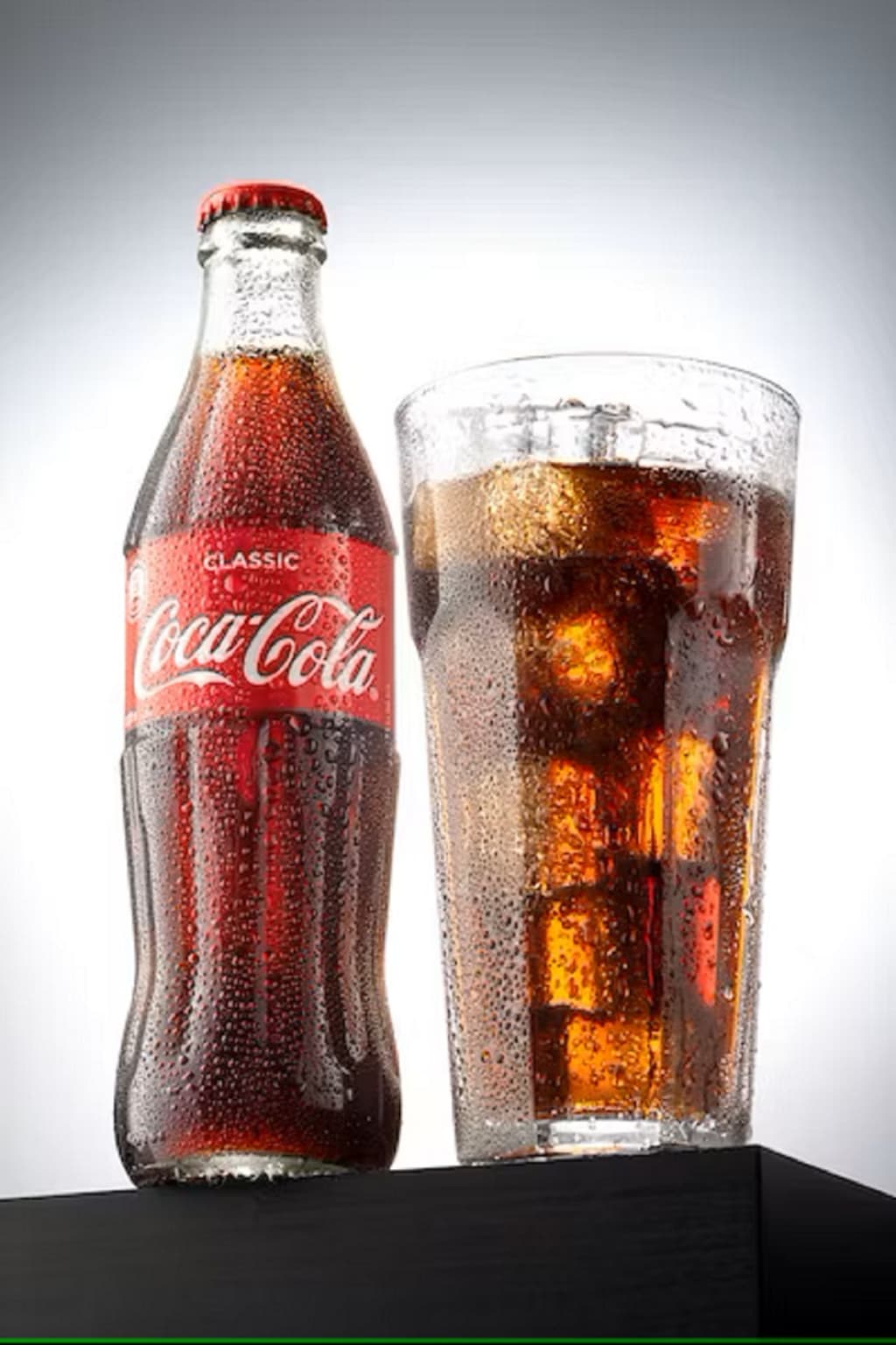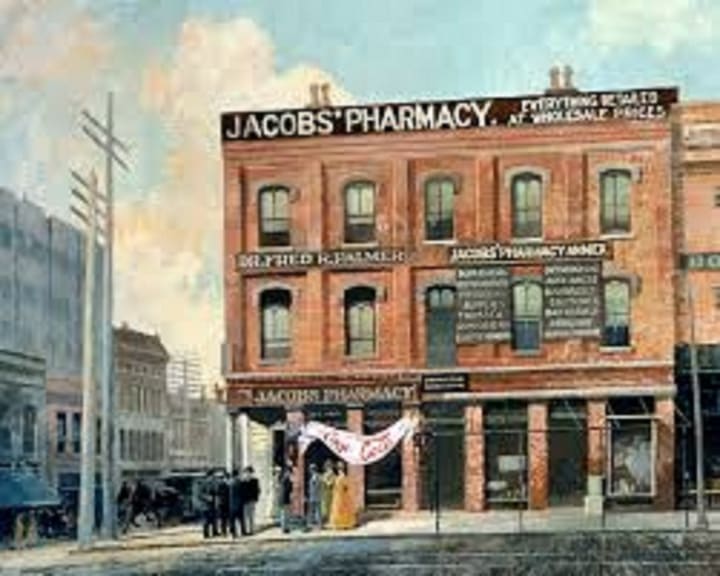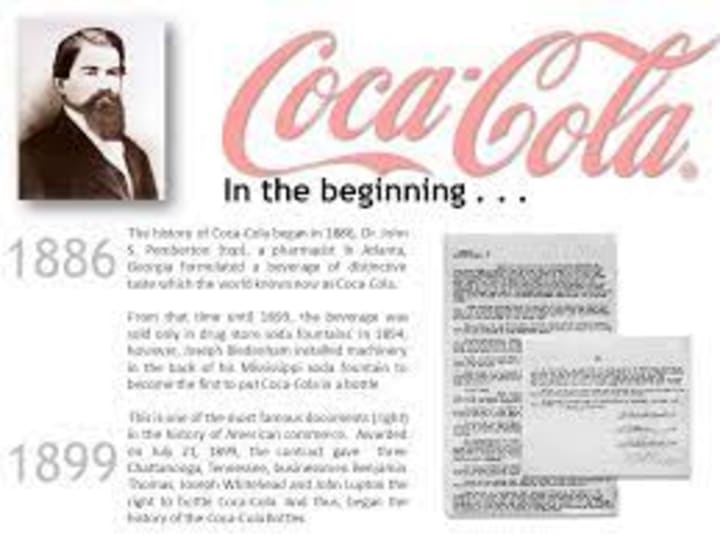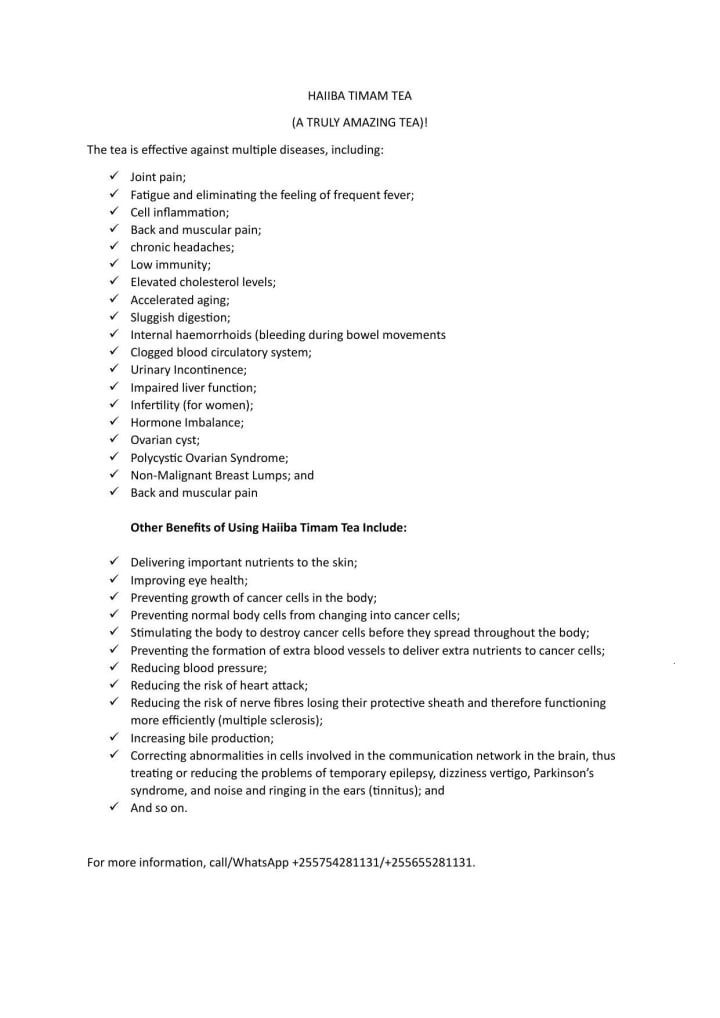The Story of an Innovator and his Invention
Why Many Inventors Miss Out on the Yum Yum Side of Their Inventions!

As an inventor and chemist, I often reflect on how others have succeeded or failed bringing their creations to market. One story that resonates is that of Dr. John Pemberton, the pharmacist who invented Coca-Cola in 1886. While his cold beverage went on to immense global success, Pemberton did not live to see most of the rewards. I am determined to learn from his experience and avoid a similar fate with my own innovation - a healing tea called Haiiba Timam Tea.
In the late 1800s, Pemberton operated a pharmacy in Atlanta, Georgia. Ever experimenting with chemical combinations, he developed a refreshing drink containing kola nut and cocaine extracts. On May 8, 1886, this new beverage was sold to customers for the first time at 5 cents a glass under the name "Coca-Cola", a name trademarked by his partner Frank M. Robinson. Initial sales were modest, averaging a mere 9 servings per day in that first year.

Failing to recognize Coca-Cola's growing commercial viability, Pemberton made some financial mistakes. He sold much of his stake in the fledgling company too early. By 1888, in poor health and with debts mounting, he unloaded his remaining share for just $500 to a local businessman named Asa Candler. Tragically, Pemberton died soon after, never witnessing what Coca-Cola would become.

While the inventor perished poor and obscure, Candler had the business acumen to realize Coca-Cola's untapped potential. Over the following decades, he focused intensely on branding and marketing strategies. Candler purchased all remaining shares, incorporated The Coca-Cola Company, and aggressively expanded distribution nationwide. Through savvy promotion and cultivating an image of fun and refreshment, sales grew exponentially year after year.
Fast forward to today, over 130 years later. Coca-Cola has revenues of $31 billion annually and a market value of $286 billion. Its brand is among the most valuable and recognizable on Earth. All because one man, Asa Candler, had the promotional prowess that Pemberton lacked. He turned a regional thirst quencher into a globally dominant soft drink industry titan.
I see parallels with Pemberton's story in my own situation developing Haiiba Timam Tea. Like Coca-Cola in the 1880s, my herbal remedy shows tremendous healing potential but remains relatively unknown. Clinical research proves it can safely and affordably cure over 35 common afflictions, from ovarian cysts and joint pain to diabetes symptoms and more. Yet without proper investment and distribution, this innovation risks never fulfilling its promise to benefit humanity.


That is why I am determined to avoid Pemberton's mistakes. While a skilled researcher and chemist in my own right, selling and promotion are not my strengths. Therefore, I actively seek investment partners who understand global business and marketing. With their financial backing and expertise, my herbal formula can be manufactured and placed in stores worldwide, accessible to those who need it most.
Current medical costs are prohibitive for most people, especially in developing nations. Major surgeries or lengthy treatments remain out of reach financially. But Haiiba Timam Tea offers a lower-cost alternative, while addressing underlying health issues rather than just symptoms. Mass produced and distributed effectively, it could generate wealth both for investors and social good. People's basic rights to affordable healthcare might finally be realized on a broader scale.
Just as Candler foresaw profit potential in Pemberton's invention that the inventor missed, I believe savvy entrepreneurs today could do the same with my healing tea. The benefits to public wellness and investor dividends alike would be immense. But it will require visionaries willing to take a chance and back my work with the resources required for mass production and marketing penetration into new markets.
In Pemberton's day, a scant $500 investment in Coca-Cola yielded unbelievable returns over the following century. Today I seek partners with comparable foresight, who understand that investing in solutions for global healthcare needs is one of the wisest long-term bets. With support, Haiiba Timam Tea could fulfil its destiny of greatly expanding access to treatment, curbing medical costs, and even saving lives - while producing fortunes for those who helped bring this innovation to the world.
My formula's power to help humanity through affordable remedies remains untapped without proper funding. But if handled correctly, as Candler did with Coca-Cola, its impact could be immense. I hope visionary investors will connect with me to discuss partnership opportunities, and together we can succeed where the founder of Coca-Cola fell short due solely to lack of sales and promotional skills. The future promises abundant benefits if modern philanthropic capitalists take the insights of history to heart.
About the Creator
Juma Killaghai
Juma Killaghai is a research chemist with over 30 years of experience in the field of research and development. He has a Master’s degree - Organic chemistry, from the University of Dar es Salaam. He resides in Dar es Salaam, Tanzania






Comments
There are no comments for this story
Be the first to respond and start the conversation.